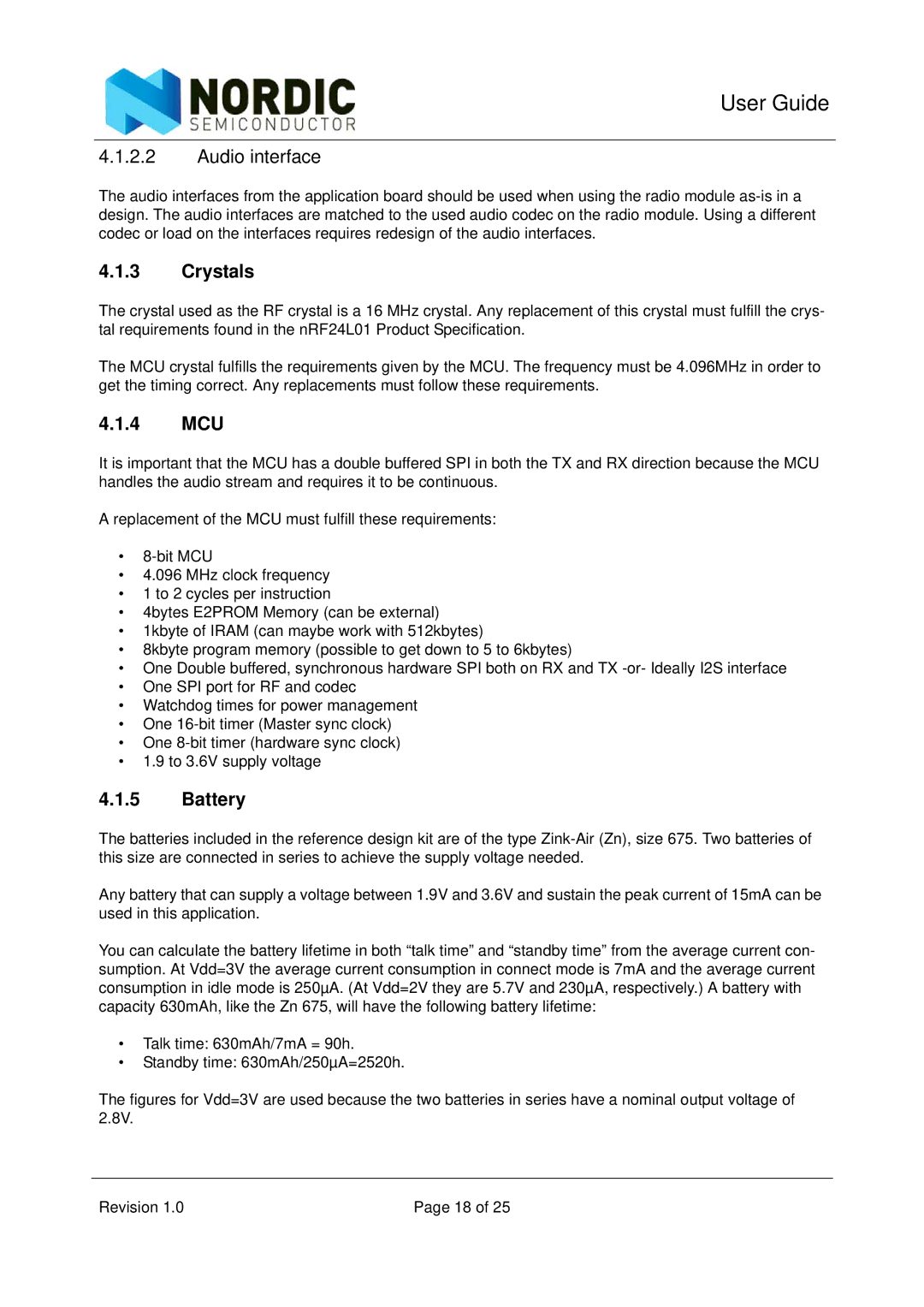
User Guide
4.1.2.2Audio interface
The audio interfaces from the application board should be used when using the radio module
4.1.3Crystals
The crystal used as the RF crystal is a 16 MHz crystal. Any replacement of this crystal must fulfill the crys- tal requirements found in the nRF24L01 Product Specification.
The MCU crystal fulfills the requirements given by the MCU. The frequency must be 4.096MHz in order to get the timing correct. Any replacements must follow these requirements.
4.1.4MCU
It is important that the MCU has a double buffered SPI in both the TX and RX direction because the MCU handles the audio stream and requires it to be continuous.
A replacement of the MCU must fulfill these requirements:
•
•4.096 MHz clock frequency
•1 to 2 cycles per instruction
•4bytes E2PROM Memory (can be external)
•1kbyte of IRAM (can maybe work with 512kbytes)
•8kbyte program memory (possible to get down to 5 to 6kbytes)
•One Double buffered, synchronous hardware SPI both on RX and TX
•One SPI port for RF and codec
•Watchdog times for power management
•One
•One
•1.9 to 3.6V supply voltage
4.1.5Battery
The batteries included in the reference design kit are of the type
Any battery that can supply a voltage between 1.9V and 3.6V and sustain the peak current of 15mA can be used in this application.
You can calculate the battery lifetime in both “talk time” and “standby time” from the average current con- sumption. At Vdd=3V the average current consumption in connect mode is 7mA and the average current consumption in idle mode is 250µA. (At Vdd=2V they are 5.7V and 230µA, respectively.) A battery with capacity 630mAh, like the Zn 675, will have the following battery lifetime:
•Talk time: 630mAh/7mA = 90h.
•Standby time: 630mAh/250µA=2520h.
The figures for Vdd=3V are used because the two batteries in series have a nominal output voltage of 2.8V.
Revision 1.0 | Page 18 of 25 |
